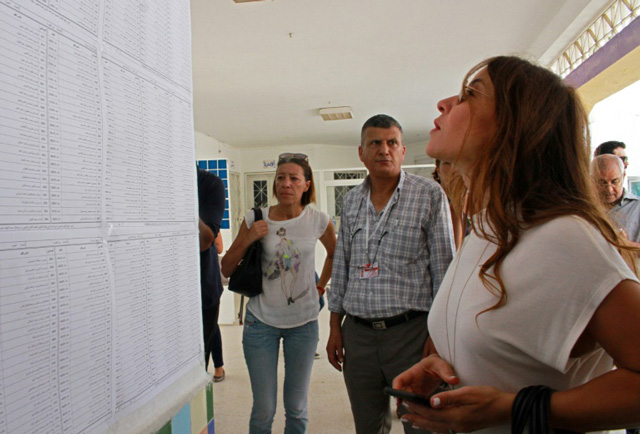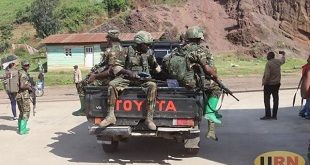
Tunis, Tunisia | AFP | Two anti-establishment candidates in Tunisia’s divisive election claimed Sunday to have won through to a runoff, hours after polling closed in the country’s second free presidential poll since the 2011 Arab Spring.
In a sign of voter apathy, especially among the young, turnout was reported by the elections commission (ISIE) to be 45 percent, down from 64 percent recorded in a first round in 2014.
Kais Saied, a 61-year-old law professor and expert on constitutional affairs who ran as an independent, claimed to be in pole position.
He finished “first in the first round”, he said, citing exit polls ahead of preliminary results expected to be announced on Tuesday.
There was also an upbeat atmosphere at the party headquarters of jailed media mogul Nabil Karoui, behind bars due to a money laundering probe, as hundreds of supporters celebrated after he also claimed to have reached the second round.
Other prominent candidates in the first round included Abdelfattah Mourou, heading a first-time bid for Islamist-inspired party Ennahdha, and Prime Minister Youssef Chahed.
Ennahdha insisted it would wait for the official results.
“Only the elections board gives the results,” said Ennahdha MP and Mourou’s campaign director, Samir Dilou.
“I do not doubt the work of the polling institutes, (but) it is not their role to impose a certain truth on the public,” he told reporters.
Chahed’s popularity has been tarnished by a sluggish economy and the rising cost of living.
The prime minister has also found himself having to vehemently deny accusations that Karoui’s detention since late August was politically inspired.
– ‘Where are the young?’ –
“Young people of Tunisia, you still have an hour to vote!” ISIE head Nabil Baffoun had urged before the close of Sunday’s vote.
“We must leave our homes and vote — it’s a right that we gained from the 2011 revolution which cost lives,” Baffoun added, visibly disappointed by the turnout.
However, he later said that the turnout of 45 percent was “an acceptable level”.
At polling stations visited by AFP journalists, there was a high proportion of older voters, but few young people.
The election followed an intense campaign characterised more by personality clashes than political differences.
It had been brought forward by the death in July of 92-year-old president Beji Caid Essebsi, whose widow also passed away on Sunday morning.
Essebsi had been elected in the wake of the 2011 revolt that overthrew former dictator Zine El Abidine Ben Ali.
Publication of opinion polls has officially been banned since July.
Some of the 24 hopefuls who contested the polls tried to burnish anti-establishment credentials to distance themselves from a political elite discredited by personal quarrels.
Another independent candidate was Defence Minister Abdelkarim Zbidi, a technocrat running for the first time, although with backing from Essebsi’s Nidaa Tounes party.
The long list of active runners was trimmed by the last-minute withdrawal of two candidates in favour of Zbidi, although their names remained on the ballot paper.
But Karoui’s detention, just 10 days ahead of the start of campaigning, has been the top story of the election.
Studies suggested his arrest boosted his popularity.
A controversial businessman, Karoui built his appeal by using his Nessma television channel to launch charity campaigns, handing out food aid to some of the country’s poorest.
But his detractors portray him as a would-be Silvio Berlusconi, the former Italian premier who they allege partly owns his channel.
On Friday, an appeal for the Tunisian mogul’s release from prison ahead of the election was rejected, his party and lawyers said.
The polarisation risks derailing the electoral process, according to Michael Ayari, an analyst for the International Crisis Group.
– ‘Divisive’ candidates –
Isabelle Werenfels, a researcher at the German Institute for International and Security Affairs, called the vote a democratic “test” because “it may require accepting the victory of a polarising candidate” such as Karoui.
Distrust of the political elite has been deepened by an unemployment rate of 15 percent and a rise in the cost of living by close to a third since 2016.
Jihadist attacks have exacted a heavy toll on the key tourism sector.
Around 70,000 security forces were mobilised for the polls.
The date of a second and final round between the top two candidates has not been announced, but it must be held by October 23 at the latest and may even take place on the same day as legislative polls, October 6.
 The Independent Uganda: You get the Truth we Pay the Price
The Independent Uganda: You get the Truth we Pay the Price



